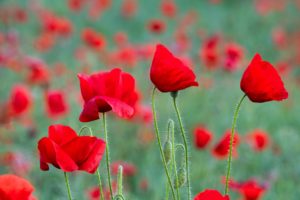
Yesterday, my adopted country, Canada, commemorated the end of the Great War, the war to end all wars, on November 11th, 1918 – a day known in Canada, as it is in the UK, as Remembrance Day. In the US, it is known as Veterans’ Day.
On Remembrance Day, we all wear poppies on our lapels, many people visit cenotaphs and other war memorials. The public broadcaster is full of stories of courage and sacrifice, from a war that ended over a century ago. No one who fought in that war is still alive. It is now truly history.
Today’s veterans look very different from the faded, black and white pictures we see in the newspaper. The issues they struggle with, however, are not that different – what we now call PTSD, was known then as shell shock. While we know much more about the human mind now, we are not necessarily much better at treating trauma now than they were back then.
One thing that struck me about the stories that I have been hearing and reading over the last few days is the generational trauma – whether we are talking about returning soldiers, survivors of the Holocaust or other genocides, or the Indigenous survivors of residential schools, the effect on their children seems to be similar.
Without fail, they tell us how their parents never talked about their past while they were growing up. In that conspiracy of silence, their pain stood between them and their loved ones like a veil that could not be penetrated, and their children and grandchildren bear the scars to this day.
For the veterans of today, suicide is a significant risk. Last year, for the first time, the Canadian Forces chose the mother of a veteran who had killed himself as the Silver Cross Mother, recognising the connection between service and unbearable trauma.
The motto for Remembrance Day is “Lest we forget.” While it is important that we remember the sacrifice of those who have gone to war on our behalf, it is perhaps even more important that we remember how necessary it is to speak out about trauma, and that there is no shame in asking for help, whether you are a veteran or not.
If we have learned nothing else over the past century, we should understand that asking for help is a sign of strength, not weakness.
